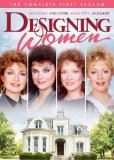| Reviews & Columns |
|
Reviews DVD TV on DVD Blu-ray 4K UHD International DVDs In Theaters Reviews by Studio Video Games Features Collector Series DVDs Easter Egg Database Interviews DVD Talk Radio Feature Articles Columns Anime Talk DVD Savant Horror DVDs The M.O.D. Squad Art House HD Talk Silent DVD
|
DVD Talk Forum |
|
|
| Resources |
|
DVD Price Search Customer Service #'s RCE Info Links |
|
Columns
|
|
|
Designing Women: The Complete First Season
air conditioning?" - Mary Jo Shively
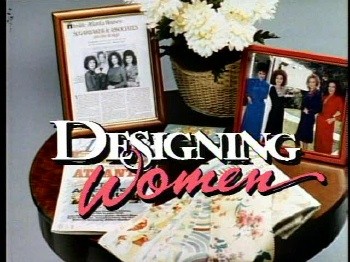
The Series
There's a bar in Washington, D.C. that plays music videos for its mostly male customers, who are also treated to various TV comedy clips inserted as filler between songs. One scene has been a staple for decades: It comes from the second episode of Designing Women, in which Dixie Carter--playing interior designer Julia Sugarbaker--delivers one of her signature monologues as she beats down a pageant diva for insulting sister Suzanne.
Like all of Carter's spirited rants, it starts slow and builds to a crescendo of loud, wide-eyed anger, her feminine fury delivered slowly but assuredly as if spoken in all caps with ellipses and exclamation points. The clip never fails to work up the enthusiastic (and frequently inebriated) crowd, which begins to shout aloud in unison as the speech nears its end, culminating in a cathartic outburst of applause, cat calls and whistles: "And that, Marjorie, just so you will know...and your children will some day know...is THE NIGHT...THE LIGHTS...WENT OUT...IN GEORGIA!!!"
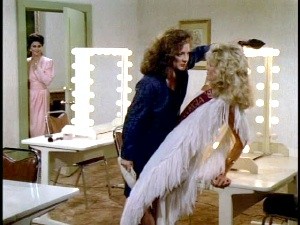
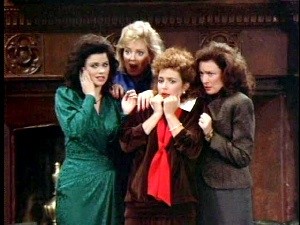
It makes sense, because there's a little drag queen diva in the big-shouldered broad, a modern-day Bette Davis. Loud, opinionated Julia has founded Atlanta's Sugarbaker and Associates with the help of her business partners: younger sister and spokesperson Suzanne (Delta Burke, a former Miss Florida), an attention-seeking beauty whose pageant crowns are rivaled in number by her ex-husbands; Mary Jo Shively (Annie Potts), a designer and recently divorced single mother; and office manager Charlene (Jean Smart), the oldest of 11 children from the small town of Poplar Bluff, Missouri (her ambition in life is to meet Jerry Lee Lewis). Collectively, they're known by business associate Boyd as the "eight finest breasts in Georgia...well, at least in the design business."
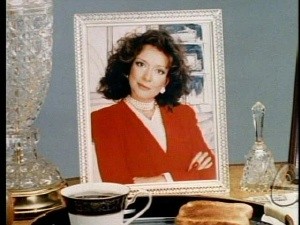
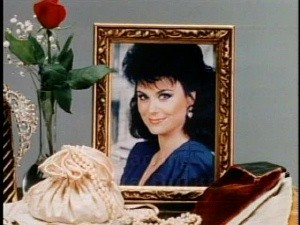
If you think that comment sets Julia off, you're mistaken. One of the many beauties of the series is how it allows its strong leading ladies to have a sense of humor while still tearing down stereotypes. The brainchild of Linda Bloodworth-Thomason (who produced alongside husband Harry Thomason), Designing Women premiered in the fall of 1986--one year after The Golden Girls helped set the template (can't you see a little Blance in Suzanne, a little Rose in Charlene and a little Dorothy in Julia?). Women also helped pave the way for Murphy Brown, which debuted two years later and was energized by an equally powerful combination of feminism and fearlessness, tackling issues that many sitcoms shied away from.
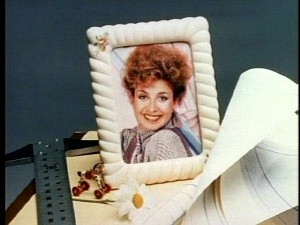
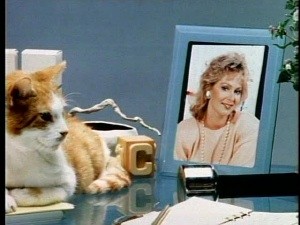
Women quickly proves it has more to offer than the standard sitcom. Conversations are frequently peppered with names from the headlines, and issues like sex, race, women's rights and homosexuality--all raised for a laugh and enlightenment--are given the respect they deserve, casually filling each episode without hijacking the script. While the show clearly leans left, the women constantly voice different viewpoints, with Suzanne always ready to spar with Julia. Women is relevant, funny and smart in both substance and execution, carefully padding its points with humor to help spread a message of tolerance:
"I used to be totally wild over Anita Bryant. I wanted to walk like her, talk like her, I even wanted to have her hair! But then she got off on that homosexual thing...it just kind of turned me off," says Suzanne. "She just became obsessed with it and stopped showing up at pageants. And for what? I mean, it wasn't like she was some homely girl who had to worry about all the homosexuals stealing all the good-looking men or anything like that. And you know, the last time I saw her, even her hair looked sort of deflated."
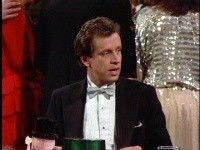
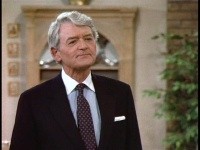
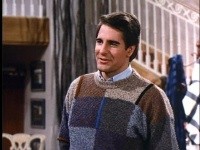
While most episodes are framed around stories with clients, equal time is given to the personal lives of the quartet--particularly Mary Jo. The mother of two young kids is still dealing with the effects of her divorce (from a pre-Quantum Leap Scott Bakula, who makes a few appearances), and her nervousness with new boyfriend J.D. (Richard Gilliland, who went on to marry Smart in real life) contributes to her already low confidence.
Meanwhile, Julia--recently widowed and the mother to college-aged son Payne (played by George Newbern, who Friends addicts will recognize as Danny the Yeti)--finds happiness with new boyfriend Reese, played by Carter's real-life husband Hal Holbrook (the cast's familiarity and comfort with each other shows, lending to a more natural rapport). Some episodes play like solos that shine the light on one character, allowing each actress to shine. But it's the magic in how they all bounce off each other that really makes the series soar:
Suzanne: "Nobody had to force me to walk down the runway in that swimsuit. I did it with my head held high!"
Julia: "You had to. The stays in that bra were so big, if you looked down you'd have gouged yourself."
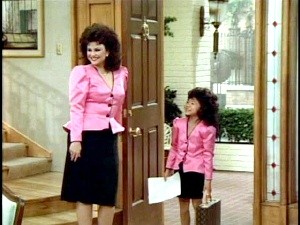
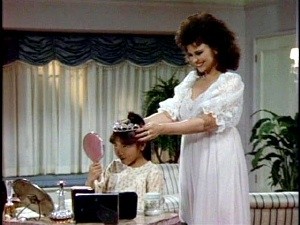
Women gets stronger as the season progresses, and new fans may be surprised at how quickly they become addicted. Highlights include the aforementioned "The Beauty Contest", a strong sophomore effort (better than the pilot) that both champions and skewers pageants ("It's like some breast-a-thon at the Olympics!"); "Design House", where Suzanne learns you need to be careful what you wish for; "Monette", in which the women make a surprising realization about one of their clients; and four of the last five episodes ("Oh Suzannah", where Suzanne gets attached to a young girl; "Seams From a Marriage", where the women get tempted by rich clients; "Grand Slam, Thank You Ma'am", where a tell-all book startles Suzanne; and "Bachelor Suite", where Mary Jo gets a handful from a client).
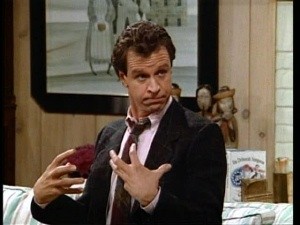
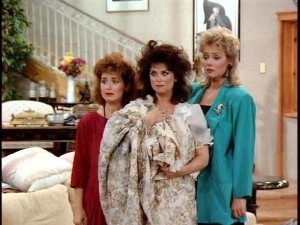
And despite sometimes-hammy acting (Potts is perhaps the most guilty of being a tad too over-the-top with her entrances), all four women are spectacular. While some plot twists and characters are conveniently contrived for the sake of Julia's socially conscious tirades (none more so than Payne's love interest in "Julia's Son" and the evil doctor in "Old Spouses Never Die"), you have to love Carter's passion: "I do indeed appear to be the picture of Southern gentility, but when I get riled, I make Rambo look like Little Miss Sunshine."
While Julia's tirades may be too exaggerated and silly for some viewers (this had to be an exhausting role), she has plenty subdued retorts that are frequently hysterical--and Carter's ability to maintain such a steely exterior makes it all the more enjoyable when Julia is taken off guard (and don't you just love her comically large glasses?!).
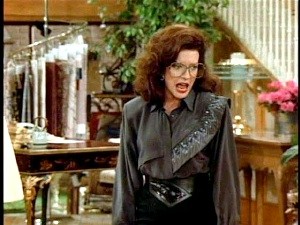
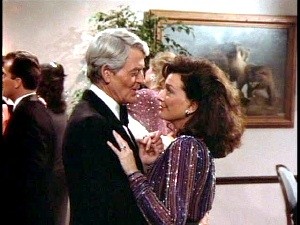
As Mary Jo, Potts is given the most relatable character. Her struggle to get past her divorce, be a good mother and find a way to open up to another man gives the show its most serious storylines, and the likeable actress has Mary Jo stumbling through the series with a smile. As fan favorite Suzanne, Burke gets the flashiest role. The necessary foil for Carter, Burke doesn't fall into the trap of making Suzanne too insensitive and one-dimensional, showing a few sides to her materialistic character. And she's constantly given the best lines:
- "You know, I am sick and tired of just being known as the good-looking one around here."
- "This is my older sister Julia, grown bitter from years of living in my shadow."
- "I chipped a nail! These hands were just not designed for manual labor. You know, it's times like these I could just kill that Gloria Steinem."
- "You have to lie on your back if you're gonna sleep in a tiara...not that I ever have."
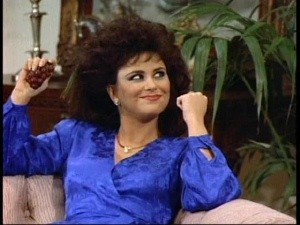
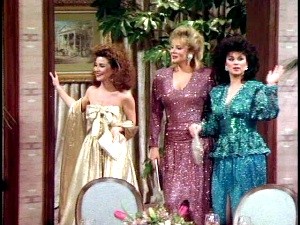
But I was always most enamored with Smart, who is able to make "hillbilly" Charlene the most enjoyable character ("She's like those women you read about in the National Enquirer...you know, the ones who don't know they're pregnant"). Prone to stream-of-consciousness thoughts and random tangents--and afflicted with a naïve nature that gets her in trouble--Charlene is perhaps the easiest character to be annoyed with. But there's something so likeable and natural about Smart's performance--it never feels false. And with the diverse roles that Smart has graduated to, it's now even more apparent just how wonderful her turn is here. She managed to grow form a role that could have limited her, making you appreciate Charlene even more.
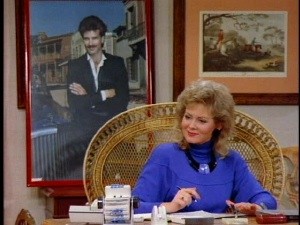
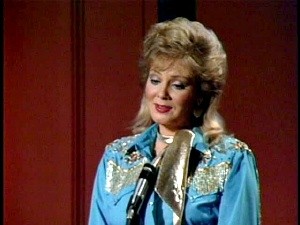
As for the rest of the cast, Meshach Taylor--who plays part-time deliveryman Anthony Bouvier (fresh out of his "unfortunate incarceration")--wasn't a series regular yet, but he shows up in 11 episodes (Alice Ghostley also pops up in one of many series appearances as scatterbrained Bernice). I never felt that Taylor was the perfect fit for the role of Anthony, and he isn't given much to do this season (although he has one of the season's most best scenes when he meets Charlene's family in "Nashville Bound").
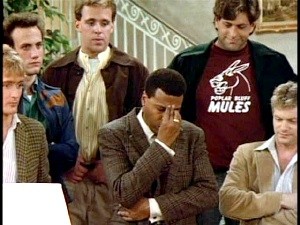
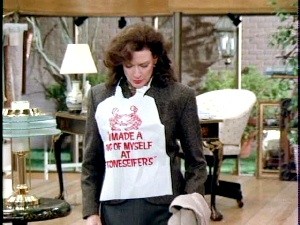
While some of the shows detractors accused Women of becoming far too political in its later years (the Thomasons were friends with the Clintons), there's little to argue about or offend here (except for maybe a surprisingly high number of fat jokes, ironic considering the drama that Burke's weight would cause down the road). Outside of some terrible elevator music that's oddly inserted to signify serious speeches (a terrible decision that just ends up cheapening what would be an otherwise powerful moment), there's little I didn't like in this first season (although I'm disappointed none of the women are anti-fur).
And you'll also get a real hoot at some of the topical references: Teddy Ruxpin proves product placement was alive and well, while The Ghost of Mr. Chicken and the Landers sisters also get a shout-out. Then there's Charlene's comment watching the ball drop on a New Year's Eve television show: "It's just not the same without Guy Lombardo!" (huh?! There was life before Dick Clark?!)
In addition to political name-checks for Reagan, Gorbachev, Qaddafi and Khomeini, other pop culture nuggets find their way into the script: J.D. drives a DeLorean, Charlene complains about a storyline in Season 6 of Dynasty ("I just decided last TV season that if John Forsythe's too stupid to tell Linda Evans from an imposter, I can't wear his cologne") and Lesley Ann Warren is used for a Lifestyles of the Rich and Famous reference. But my favorite moment comes in the finale, when an enthusiastic Charlene sings Barbara Mandrell's "Sleeping Single in a Double Bed" (!) into her magic marker. Take it away, Charlene!
Thinking over things I wish I'd said (ooh-ooh),
I should have held you but I let you go,
Now I'm the one sleeping all alo-oh-one!"
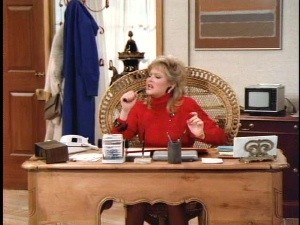
Episode Guide:
The 21 episodes (about 22 minutes each, save for the double-length "Old Spouses Never Die") are spread across four discs:
1. Designing Women (aired 9-29-1986) Suzanne needs to find a new gynecologist; Mary Jo's ex-husband happens to be one.
2. The Beauty Contest (aired 10-6-1986) Mary Jo is not pleased when her daughter is secretly entered into the Miss Pre-Teen Atlanta competition by Charlene.
3. A Big Affair (aired 10-20-1986) In an effort to impress a wealthy and hefty client, Suzanne tries to get Charlene to go out with him.
4. Julia's Son (aired 10-27-1986) Julia's 19-year-old son is coming home for a visit from college with his new girlfriend--who makes an instant impression.
5. Mary Jo's First Date (aired 11-3-1986) Suzanne is determined to set Mary Jo up on her first date since her divorce; Julia is being audited.
6. Design House (aired 11-17-1986) Suzanne wants to improve her worth at Sugarbakers, so Julia promises her the next project that walks in the door.
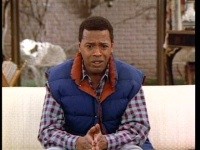
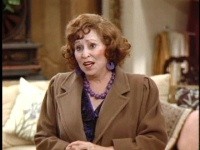
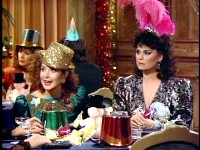
7. Perky's Visit (aired 11-24-1986) The staff enjoys Thanksgiving together, joined by Julia and Suzanne's mother--who brings along friend Bernice.
8. I Do, I Don't (aired 12-4-1986) Julia and Reese have been dating for six months, and he tells he has a special gift for her.
9. The IT Men (aired 12-11-1986) Charlene's boyfriend Mason takes a job in Japan, and she immediately find's chemistry with someone else.
10. The Slumber Party (aired 12-18-1986) Julia, Christine and Suzanne help chaperone a slumber party at Mary Jo's house and wind up having one themselves.
11. New Year's Daze (aired 1-1-1987) It's New Year's Eve, and everyone is ready for a fabulous night on the town.
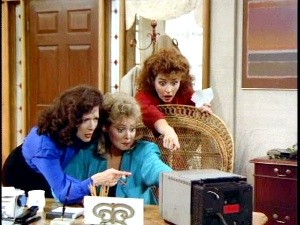
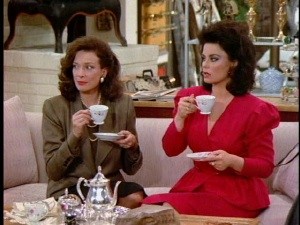
12. Old Spouses Never Die (aired 2-1-1987) Between her ex-husband and his ex-wife, Mary Jo and J.D. don't stand a chance of getting intimate; Charlene finds a lump in her breast. Special hour-long episode.
13. Monette (aired 2-8-1987) An old friend of Charlene's moves to Atlanta and asks the women to decorate her large house.
14. And Justice for Paul (aired 2-15-1987) Suzanne has brought in a much-needed new clinet, but he's cheap; Charlene has a friend who finds them furnishings at rock-bottom prices.
15. Reese's Friend (aired 2-22-1987) Julia's boyfriend Reese has a new law associate, and she's gorgeous.
16. Nashville Bound (aired 3-16-1987) Charlene's entire family is coming out for a visit just as she meets a singing producer who wants to help with her career.
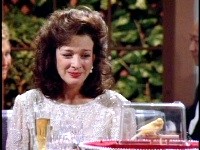
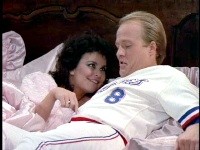
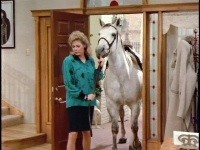
17. Oh, Suzannah (aired 3-23-1987) Suzanne casually offers to foster a Vietnamese orphan for four weeks.
18. Mary Jo's Dad Dates Charlene (aired 4-6-1987) Mary Jo's father visits for the first time since his divorce--and develops an attraction to Charlene.
19. Seams from a Marriage (aired 4-13-1987) New Sugarbaker clients Sissy and Shelby Tate have the staff dazzled with their enormous wealth. Julia is concerned, so she takes over the account.
20. Grand Slam, Thank You Ma'am (aired 5-4-1987) One of Suzanne's ex-husbands, an Atlanta Braves pitcher, has written a tell-all biography full of stories that stun Suzanne.
21. Bachelor Suite (aired 5-11-1987) Mary Jo, on the verge of finally being intimate with J.D., becomes the victim of sexual harassment by a wealthy client.
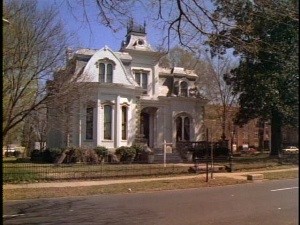
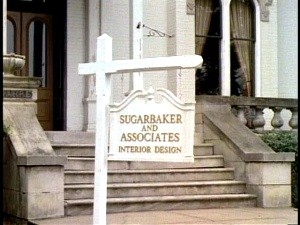
The DVD
Video:
Shown in their original full-frame presentations, the episodes don't look much better than they probably did on TV. They're certainly watchable and not nearly bad enough to detract from your viewing experience, but there's no sharpness and plenty of grain, with dull colors and lots of film specs (the pilot suffers a little more than the rest; you might notice some very minor ghosting in it).
Audio:
The 2.0 track is just as average, but again isn't bad enough to detract from the show. Dialogue is always understandable, although isn't very crisp--and some minor volume fluctuation creeps in every so often. No subtitles are provided.
Extras:
There's just one extra here, but it's a good one--Designing Women: A Reunion (43:38) features footage (edited down from a longer session) from a 2006 panel at The Paley Center for Media. Moderator Barbara Dixon welcomes creator Linda Bloodworth-Thomason and the four leads, who talk about the show's creation (and the uphill battles it faced), their characters and the series' importance. While it takes a while for Dixon to let all of the actresses speak (it's a little Delta Burke focused at first), it turns out to be a great watch that covers important points from the series' full run (the final 10 minutes have the panel answering some audience questions).
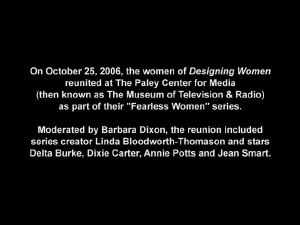
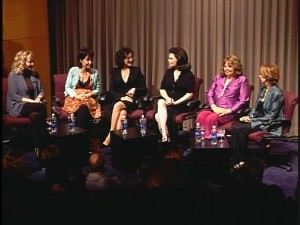
"Now that we're even older, I think we can appreciate more the rare experience that we were given. When we compare the experience to that most young girls are given today in the industry, I think we know how blessed we were and are," says Bloodworth-Thomason. "We were kind of an exotic bird, and they didn't know what to do with us...our voices didn't sound like anybody else on television, and we were so loud-mouthed and obnoxious."
The creator notes that Jean Smart was the greatest departure from her character--yet also had the best accent ("The only Yankee we allowed!"). Smart later jokes about the large scripts (often finished late to accommodate timely issues) that were hard to squeeze into a half-hour sitcom: "I think sometimes they actually sped up the film. Every once in a while, you'd see an episode where we'd sound a little bit chipmunk-y."
Viewers may also be surprised to learn that Dixie Carter was a Republican, and was bribed with singing opportunities on the show in exchange for espousing Bloodworth-Thomason's liberal views. The cast also talks about their closeness and lack of ego--and having to battle the stereotype that successful women couldn't get along (a constant topic for the media). They also share their favorite lines and episodes, with Carter sharing a touching story and Burke briefly reflecting upon her weight. Another funny fact: Through 167 shows, the series only won a single Emmy...for Outstanding Achievement in Hairstyling (!).
The panel also touches upon the show's appeal to gay fans, noting how Dixie's speech in "The Beauty Contest" gets plenty of air time at gay bars across the country (in defense of myself, I wrote my review in full--including the lead--before I even watched this bonus feature, so you can imagine how giddy I was). "We want to thank and acknowledge our gay brethren," says Bloodworth-Thomason. "We know we would not have stayed on the air [without them]. Every week, CBS would look at (the ratings) and go, 'Look at that...San Francisco, wow!'"
Adds Smart: "Until Sex and the City came out, they were always dressing like us in the West Hollywood parades." And Potts chimes in with another supportive thought: "I think if we were still on, we could get them to pass the gay marriage amendment." (Hmm, how about a series resurrection?)
While there's a little rambling at times during the panel, it's all worth it. I actually wish the piece were longer and covered even more topics in depth, but for now this will do. A booklet featuring an informative essay from Bloodworth-Thomason and an episode guide is also included, as our other Shout Factory trailers.
Final Thoughts:
The television world had seen strong, intelligent, well-written female characters before 1986, but having four in one series was rare. Designing Women helped the cause tremendously--and still stands as one of the industry's most important shows. In addition to being damn funny, it was also smart--injecting important social issues into its scripts in ways both thought-provoking and humorous. For a show with so many shoulder pads, it's remarkable how timely and relevant these episodes still are. As for the laughs, they still hold up, too. Season 1 comes Highly Recommended.
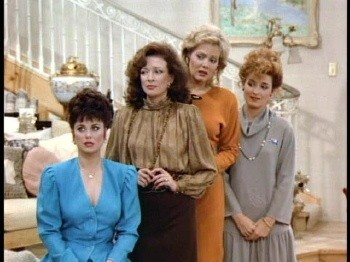
|
| Popular Reviews |
| Sponsored Links |
|
|
| Sponsored Links |
|
|
| Release List | Reviews | Shop | Newsletter | Forum | DVD Giveaways | Blu-Ray | Advertise |
|
Copyright 2024 DVDTalk.com All Rights Reserved. Legal Info, Privacy Policy, Terms of Use,
Manage Preferences,
Your Privacy Choices | |||||||









